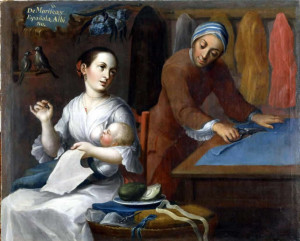TWO CONFERENCES, Wellington, NEW ZEALAND, Late January-early February, 2017
Late-Antiquity Panel(s) at:
The 38th Meeting of the Australasian Society for Classical Studies (ASCS) Meeting (31 January to 3 February 2017)
AND/OR
The 11th Biennial Australian New Zealand Association for Medieval and Early Modern Studies (ANZAMEMS) Conference (7-10 February 2017)
Both to be hosted at Victoria University of Wellington, New Zealand.
In early 2017, Victoria University of Wellington will be hosting two separate conferences a few days apart, both of which will be hospitable to late antique and early medieval scholars.
Dr. Lisa Bailey (Senior Lecturer in Classics and Ancient History and History/University of Auckland/lk.bailey@auckland.ac.nz) and Dr. Mark Masterson (Senior Lecturer of Classics/Victoria University of Wellington/Mark.Masterson@vuw.ac.nz) would like to organize panels on Late Antiquity (broadly construed) at these conferences. We welcome abstracts for either conference or for both, from scholars in Australasia or beyond.
***NOTE: persons not from Australia or New Zealand do NOT have to be members of ASCS or ANZAMEMS to submit an abstract or to give a paper.
We welcome abstracts of 150-250 words on most any aspect of late antiquity which we will group and then put forward to the programme committee.
We would like abstracts by 15 June, 2016.
We welcome inquiries.
Please send questions and abstracts to Mark Masterson (Mark.Masterson@vuw.ac.nz). Please specify which conference (ASCS or ANZAMEMS) your abstract is for.
See below for guidelines.
GUIDELINES FROM ASCS:
There is no particular theme for this conference (therefore Late-Antiquity broadly construed will do).
Offers of papers, posters, panels and archaeological reports should be accompanied by an abstract of 150-250 words.
The abstract should contain the following information:
- a clear initial statement of purpose;
- a brief explanation of the abstract’s relationship to the previous literature on the topic, including some brief citations of, or reference to, any important literature;
- a summary of the argumentation;
- some examples to be used in the argumentation (this step could be left out if the word limit is affected);
- reference to works (maximum of 3) which are seminal to the argument. Short citations (author year pp) should be included in the abstract so that readers are clear on how these works have informed your argument. Full bibliographical details (which do not count in the word limit) of the works cited in the abstract should be supplied at the end of the abstract. If you think reference to other authors is not appropriate or necessary, you must add a brief paragraph to inform the committee as to why (e.g. the topic is completely new or it is the report of a season’s excavations).
The abstract should make it clear that the paper is suitable for oral presentation within the time limit (maximum time 20 minutes = less than 3000 words).
GUIDELINES FROM ANZAMEMS:
Our theme for ANZAMEMS 2017 is mobility and exchange. We encourage proposals for papers or panels addressing any aspect of this theme, including (but not limited to):
- social, cultural, and intellectual exchange
- the circulation of texts, ideas, and people
- commercial and mercantile exchange
- legal interchange
- transport and transportation
- rural and urban mobilities
- pilgrimage, exploration, and migration
- transglobal and trans-temporal medievalisms and early modernisms
PAPER PROPOSALS SHOULD INCLUDE:
- Paper title
- Abstract (up to 150 words)
- The name, affiliation, and email address of the presenter
- An indication of AV requirements

